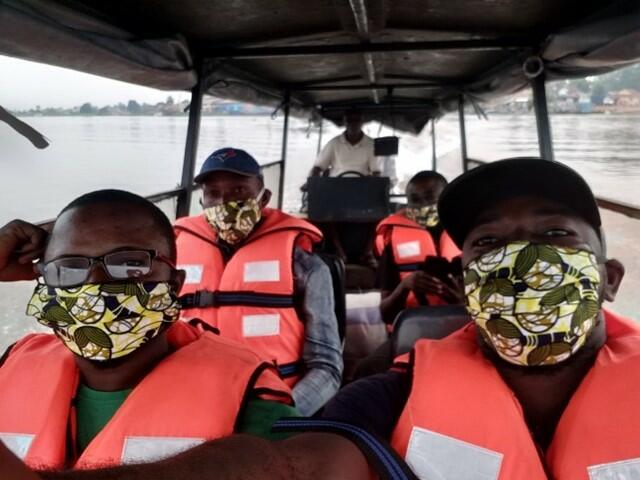
While many disease control programmes have been halted or reduced during the COVID-19 pandemic, the capacity strengthening built into a programme for tsetse fly control in DRC by LSTM and their partners, the Programme National de Lutte contre la Tryaponosomiase Humaine Africaine (PNLTHA) has meant that activities have continued throughout.
While the lockdown policy has meant that LSTM and PNLTHA Kinshasa staff were unable to travel to the field to support their colleagues, local operational teams have continued with activities, and despite the challenges imposed, entomological evaluations were completed by the local teams alone for the first time. To support these activities in Liverpool, LSTM’s vector control team, together with partners, have produced a contingency plan to continue to build PNLTHA’s local team capacities. The plan includes a strengthening of technology to communicate and continue remote working. Unable to train local staff face to face to use a mobile app developed by technical partner Bluesquare, the team developed a training guide and, with PNLTHA in Kinshasa, offered support over the phone so that data could still be collected.
LSTM’s Dr Iñaki Tirados said: “Vector control complements medical interventions in the fight against sleeping sickness, with Tiny Targets we have a cheap, easy to use technology that national control programmes can adopt for large-scale interventions and we have seen in DRC and elsewhere that we can achieve 80-90-% reductions in tsetse fly densities.” Dr Pierre Abomo from LSTM’s Centre for Capacity Research added “What the challenges of COVID have shown us is that capacity strengthening has the potential to empower local teams resulting in a lasting impact and better sustainability of the effects of global health interventions.”
The team also found that transferring responsibilities from international partners to local teams was accelerated successfully through the challenges of COVID, with LSTM continuing to offer ‘light-touch’ assistance, while the support of local health authorities remained vital. They also point out how crucial excellent communications between the teams is.
“For the vector control teams, the next phase is the deployment of around 35,000 Tiny Targets in five health zones.” Continued Dr Tirados “Although this activity is more challenging than the entomological monitoring, with the experience of the work already completed by the teams, we are confident that they will manage this next step just as well and continue the progress to autonomy.”